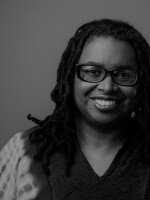Recent discussions about protecting LGBTQ residents from discrimination in Prairie Village and Mission, Kansas, recall a similar, highly controversial effort a few years ago in Roeland Park — and a quiet development in Wyandotte County earlier this year.
“If I worked in Prairie Village I could be fired for being gay. I’m married to my wife, but if I displayed a picture of her on my desk, it would be legal to be fired for that,” says Kaitlin Vaughn, who lives on a tree-lined block in that city.
Last month, Prairie Village City Council members were scheduled to listen to public testimony on a proposed measure that would make it illegal to discriminate against members of the LGBTQ community. After six council members didn’t attend, the meeting was canceled and rescheduled for October 15.
On October 3, city council members in Mission heard a proposal for a similar nondiscrimination ordinance. After meeting approval in committee, the proposal will go before the city council for a vote after a final draft is prepared.
Vaughn has lived in Prairie Village for two years and has not experienced obvious discrimination. However, Vaughn says, the proposed laws are less about remedying what has happened than they are about preventing what might happen otherwise.
“The fact is, it’s not illegal to discriminate right now and because of that, you’re not going to be able to point to a record or point to something that shows there are X amount of cases of discrimination,” says Brett Hoedl, who chairs the Kansas City Metro chapter of the LGBTQ-rights organization Equality Kansas. which has 11 chapters around the state.
Although the United States Supreme Court legalized same-sex marriage nationwide in 2015, no federal laws protect LGBTQ people from discrimination in housing, employment and public accommodations.
Twenty-one states and the District of Columbia have laws prohibiting discrimination against LGBTQ people, and about 225 cities – including, Kansas City, Missouri – offer similar legal protection.
On the Kansas side of the metro, Roeland Park passed such an ordinance after several months of contentious debate in 2014. In June of this year, Wyandotte County became the first county in the state to pass such an ordinance, with no visible opposition. (Lawrence and Manhattan, Kansas, also have non-discrimination ordinances.)
"Trying to count on state or federal protection in this area isn’t working, so I think that’s why different municipalities are looking at it now," says Sollie Flora, the council member from Mission who has proposed a nondiscrimination ordinance for her city.
In May, Kansas Gov. Jeff Colyer signed a bill allowing faith-based child placement agencies that refuse to place children with same-sex couples, single parents, or non-Christians to still get state reimbursement for the services they provide.

Since then, Hoedl says, residents of more municipalities in the Kansas City metro began reaching out to his organization.
“More and more people became aware that you were able to be discriminated against,” Hoedl says.
Not everyone supports such ordinances.
Eric Teetsel, president of the faith-based Family Policy Alliance of Kansas, says his organization plans to mobilize against the efforts in Mission and Prairie Village. Teetsel says the impact of LGBTQ non-discrimination ordinances is actually to discriminate against business owners who have religious objections.
“Our concern is that everyone in Mission, every citizen, be welcomed and be given the opportunity to live according to their deeply held beliefs and values. And SOGI (sexual orientation and gender identity) ordinances work against that fundamental principle of fairness,” he says.
“We think that Kansans, no matter where they live, have the right to live and work and play and go to school without being forced to choose beliefs and the political dictates of city governments,” Teetsel says.
“The message that is being sent is, if you’re a person of faith, you’re not welcome in Mission,” Teetsel says.
Teetsel says the ordinances don't appear to be necessary. For example, he says, at the Mission committee meeting last week, no one came forward saying a problem of discrimination existed.
But Hoedl says the fact that cities are not hearing about incidents of discrimination is no indication that discrimination isn’t happening or won’t happen.
Hoedl says such ordinances allow the weight to be taken off the shoulders of people who worry about being on the receiving end of discrimination. He anticipates more cities in Johnson County will consider similar proposals later this year and in 2019.
Michelle Tyrene Johnson is a reporter at KCUR 89.3 and part of the public radio collaborative Sharing America, covering the intersection of race, identity and culture. This initiative, funded by the Corporation for Public Broadcasting, includes reporters in Kansas City, St. Louis, Hartford, Connecticut and Portland, Oregon.



